Welcome User
Relevance
Consult Nuclear Medicine Physicians Online (8 doctors)
Dr Sumanth R
General Physician
2 Years • MBBS
Bengaluru
PRESTIGE SHANTHINIKETAN - SOCIETY CLINIC, Bengaluru

Dr. Thorana Prakash M
General Physician
2 Years • MBBS
Bengaluru
PRESTIGE SHANTHINIKETAN - SOCIETY CLINIC, Bengaluru

Dr. Ramalinga Reddy
General Physician
5 Years • MBBS MD General medicine
Bengaluru
PRESTIGE SHANTHINIKETAN - SOCIETY CLINIC, Bengaluru
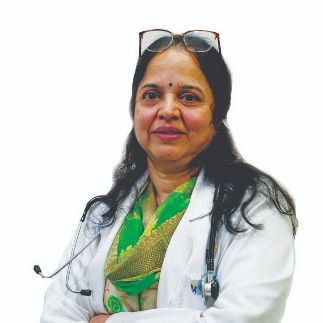
Dr. Uma Ravishankar
Nuclear Medicine Specialist Physician
30 Years • MBBS, DNB, Dip. in Radiation Medicine
Delhi
Apollo Hospitals Indraprastha, Delhi
(25+ Patients)
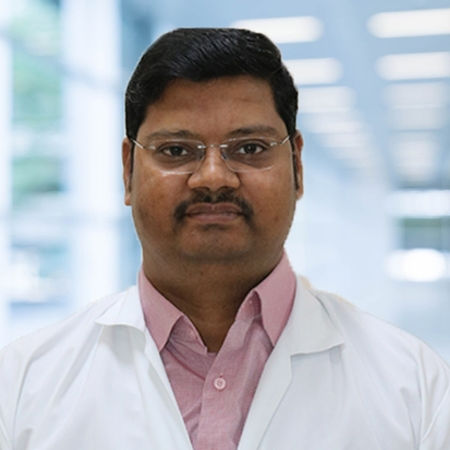
Dr. Anand Zade
Nuclear Medicine Specialist Physician
15 Years • MBBS, DNB ( Nuclear Medicine)
Mumbai
Apollo Hospitals CBD Belapur, Mumbai
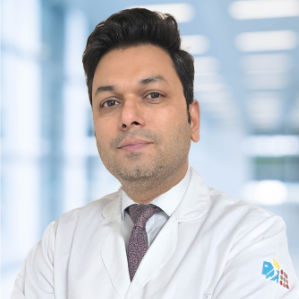
Dr Rahul Chauhan
Nuclear Medicine Specialist Physician
3 Years • MD (Nuclear Medicine), ECFMG (USA), Fellowship in Hybrid Imaging, Switzerland
Lucknow
Apollomedics Super Speciality Hospital, Lucknow
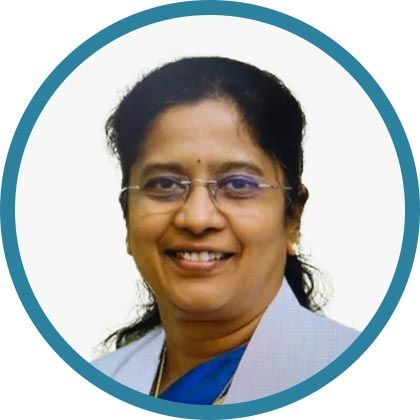
Dr. Indirani M
Nuclear Medicine Specialist Physician
26 Years • MBBS DMRD DNB (NUCLEAR MEDICINE) DNB (RAD) MNAMS
Chennai
Apollo Hospitals Greams Road, Chennai
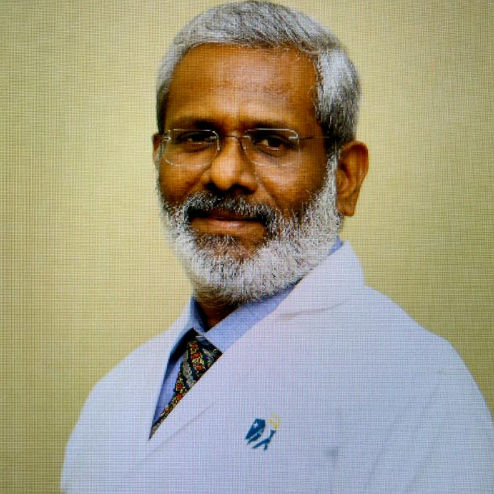
Dr. Shelley Simon
Nuclear Medicine Specialist Physician
26 Years • MBBS DRM DNB(Nuclear Medicine) MNAMS
Chennai
Apollo Hospitals Greams Road, Chennai
(25+ Patients)
Book Consult for Nuclear Medicine Physician Online
Booking an appointment with a top nuclear medicine physician is now easier than ever with Apollo 24|7. Our user-friendly platform allows you to schedule an online nuclear medicine doctor consultation at your convenience, with access to trusted hospitals and clinics across the country. Choose from a wide range of experienced nuclear medicine doctors who specialise in various areas such as thyroid, liver, bone imaging, and cancer treatment. With flexible appointment slots and transparent nuclear medicine doctor fees, you can find the right specialist to suit your needs. Take the first step towards better health and book a nuclear medicine doctor.
What is Nuclear Medicine?
A nuclear medicine doctor is a medical specialist who utilises radiopharmaceuticals for the diagnosis and treatment of various medical conditions. The focus area of this speciality includes the use of radioactive substances to visualize and treat diseases at the molecular level. Nuclear medicine physicians commonly use nuclear imaging to diagnose and treat conditions such as heart disease, cancer, Parkinson's disease, internal bleeding, and organ dysfunction. They employ radiopharmaceuticals to illuminate specific parts of the body, allowing for detailed imaging and treatment of these conditions. Nuclear medicine plays a crucial role in healthcare by providing highly sensitive and specific diagnostic tools that can detect diseases at an early stage, often before symptoms become apparent.
Who is a Nuclear Medicine Doctor?
A nuclear medicine physician is a doctor who specialises in the use of radiopharmaceuticals for diagnostic and therapeutic purposes. In the Indian subcontinent, these physicians typically complete a bachelor's degree followed by an MBBS (Bachelor of Medicine, Bachelor of Surgery) from an accredited medical school, which takes about 8 years. After becoming a licensed physician, they undergo additional specialized training in nuclear medicine, which can take up to 3 years. Nuclear medicine physicians are trained to administer radiopharmaceuticals, perform body scans, interpret test results, and discuss findings with patients and other healthcare providers. They play a critical role in diagnosing and treating a range of conditions by integrating knowledge of radiation biology, radiopharmacy, and nuclear physics with clinical skills.
What Do Nuclear Medicine Physicians Do?
Nuclear medicine physicians are highly skilled medical professionals who specialise in utilising radiopharmaceuticals for the diagnosis and treatment of various health conditions. These nuclear medicine doctors play a crucial role in providing comprehensive care to patients with thyroid, liver, bone, and cancer-related issues. Here are the key responsibilities and day-to-day activities of these specialists:
Administering radiopharmaceuticals to patients for diagnostic imaging or therapeutic purposes
Performing and interpreting diagnostic tests such as bone scans, PET scans, and SPECT scans to detect and evaluate various diseases
Collaborating with other medical specialists, such as thyroid doctors, oncologists, and radiologists, to develop personalised treatment plans for patients
Monitoring patients' response to radionuclide therapy and adjusting treatment as needed
Ensuring the safe handling, storage, and disposal of radioactive materials used in nuclear medicine procedures
Staying up-to-date with the latest advancements in nuclear medicine technology and techniques to provide the best possible care to patients
What are the other Sub-Specialities of Nuclear Medicine?
Nuclear medicine is a diverse field that encompasses several sub-specialities, each focusing on specific aspects of utilising radiopharmaceuticals for diagnostic and therapeutic purposes. Some of the key sub-specialities include:
Molecular Imaging: This sub-speciality focuses on using advanced imaging techniques, such as PET and SPECT, to visualise and quantify molecular processes within the body, enabling early detection and monitoring of diseases at the cellular level.
Therapeutic Nuclear Medicine: Bone scan doctors or bone imaging doctors in this sub-speciality specialise in using radiopharmaceuticals for the treatment of various conditions, such as thyroid disorders, neuroendocrine tumours, and bone pain related to cancer metastases.
Pediatric Nuclear Medicine: This sub-speciality deals with the unique challenges of applying nuclear medicine techniques to diagnose and treat diseases in children, taking into account their developing bodies and special needs.
Cardiac Nuclear Medicine: Physicians in this sub-specialty use nuclear imaging techniques to evaluate heart function, detect coronary artery disease, and assess the effectiveness of cardiac treatments.
Neuroimaging: This sub-specialty focuses on using nuclear medicine techniques to diagnose and monitor neurological disorders, such as Alzheimer's disease, Parkinson's disease, and epilepsy.
Oncological Imaging: Cancer treatment doctors in this sub-speciality utilise radiopharmaceuticals to detect, stage, and monitor various types of cancer, as well as to assess the effectiveness of cancer treatments.
Infectious Disease Imaging: This sub-specialty involves using nuclear medicine techniques to diagnose and localise infections, such as osteomyelitis, septic arthritis, and fever of unknown origin.
Endocrine Nuclear Medicine: Physicians in this sub-specialty specialise in using radiopharmaceuticals to diagnose and treat endocrine disorders, particularly those related to the thyroid gland, such as hyperthyroidism and thyroid cancer.
Radiopharmaceutical Development: This sub-specialty focuses on the research and development of new radiopharmaceuticals and imaging agents to improve the diagnostic and therapeutic capabilities of nuclear medicine.
Nuclear Medicine Technology: Physicians in this sub-specialty work closely with nuclear medicine technologists to ensure the proper operation and maintenance of nuclear medicine equipment, as well as to optimise imaging protocols and radiation safety measures.
What are the Examinations Conducted Under Nuclear Medicine or Tests Performed by a Nuclear Medicine Physician?
Nuclear medicine physicians perform a wide range of diagnostic tests and examinations to evaluate various organ systems and detect underlying health conditions. Some of the most common examinations conducted by nuclear medicine doctors include:
Thyroid Scan: This test is performed by a thyroid doctor to evaluate the function of the thyroid gland and to detect any abnormalities, such as nodules or inflammation.
Bone Scan: A bone scan by a bone scan doctor to detect any abnormalities in the bones, such as fractures, infections, or cancer metastases.
Liver Scan: This test is performed by a liver doctor to assess the function and structure of the liver, as well as to detect any tumours or other abnormalities.
Renal Scan: A renal scan is used to evaluate the function and blood flow of the kidneys, as well as to detect any obstruction or scarring.
Cardiac Stress Test: This test is performed to assess the blood flow to the heart muscle during exercise or pharmacological stress.
PET Scan: Positron emission tomography (PET) scans are commonly used by cancer treatment doctors to detect and stage various types of cancer, as well as to evaluate brain function in conditions such as Alzheimer's disease and epilepsy.
What are the Common Conditions & Diseases that Nuclear Medicine Physicians Treat?
Nuclear medicine physicians manage a wide range of conditions and diseases using the unique capabilities of nuclear medicine to diagnose and treat at a cellular and molecular level. Here are some of the most common conditions and diseases they manage:
Thyroid Disorders: A thyroid doctor diagnoses and treats various thyroid conditions, including hyperthyroidism, hypothyroidism, and thyroid cancer.
Bone Conditions: A bone scan doctor or bone imaging doctor evaluates bone fractures, infections, arthritis, and metastatic bone disease using bone scans.
Liver Disorders: The liver doctors assess liver function and diagnose conditions such as cirrhosis, hepatitis, and liver tumours.
Cancer: The cancer treatment doctor plays a crucial role in determining the stage of cancer, monitoring its spread, planning treatment, and evaluating the response to therapy.
Heart Conditions: Nuclear medicine is used to evaluate blood flow and heart function, detect coronary artery disease, assess damage after a heart attack, and evaluate the effectiveness of treatments like bypass surgery and angioplasty.
Neurological Disorders: A nuclear medicine doctor helps investigate abnormalities related to seizures, memory loss, and blood flow problems, and can detect early signs of neurological disorders like Alzheimer's and Parkinson's disease.
Renal Conditions: Nuclear medicine physicians assess kidney blood flow and function, detect blockages in the urinary tract, and evaluate conditions like hypertension in the kidney arteries and kidney infections.
Endocrine Disorders: Nuclear medicine doctors diagnose and treat various endocrine disorders, including parathyroid disorders and adrenal gland abnormalities.
Gastrointestinal Disorders: Nuclear medicine techniques help evaluate gastrointestinal bleeding, motility disorders, and inflammatory bowel disease.
Lung Conditions: Nuclear medicine scans can assess lung function, detect blood clots in the lungs (pulmonary embolism), and diagnose conditions like pneumonia and lung cancer.
Reasons to See a Nuclear Medicine Physician
There are several reasons why you may need to consult a nuclear medicine doctor:
Suspected Cancer: If there is a suspicion of cancer, a cancer treatment doctor can perform scans to determine the stage of cancer, check for metastasis, and monitor the response to cancer therapy.
Thyroid Problems: Symptoms of thyroid dysfunction, such as hyperthyroidism or suspected thyroid cancer, necessitate a visit to a thyroid doctor for diagnostic and therapeutic interventions.
Bone and Joint Pain: Patients with persistent bone or joint pain may need bone scans to diagnose conditions like osteomyelitis, arthritis, or metastatic bone disease.
Heart Symptoms: Patients experiencing symptoms like chest pain, shortness of breath, or suspected coronary artery disease may be referred to a nuclear medicine physician for heart function tests such as myocardial perfusion scans.
Liver Disorders: Patients with suspected liver conditions, such as cirrhosis, hepatitis, or liver tumours, may require nuclear medicine scans for accurate diagnosis and treatment planning.
Neurological Symptoms: Symptoms like seizures, memory loss, or suspected neurological disorders may require nuclear medicine scans to diagnose and manage conditions like Alzheimer's disease or Parkinson's disease.
What Types of Procedures Do Nuclear Medicine Physicians Perform?
Nuclear medicine physicians perform a variety of diagnostic and therapeutic procedures, including:
Bone Scans: These scans help detect bone fractures, infections, arthritis, and metastatic bone disease.
Thyroid Scans and Therapy: Nuclear medicine is used to diagnose thyroid conditions like hyperthyroidism and thyroid cancer, as well as to treat these conditions using radioactive iodine therapy.
Cardiac Stress Tests: These tests evaluate heart blood flow and function, helping diagnose coronary artery disease and assess the effectiveness of treatments.
PET (Positron Emission Tomography) Scans: PET scans provide detailed images of metabolic activity in the body, which is useful for cancer staging and monitoring.
SPECT (Single Photon Emission Computed Tomography) Scans: SPECT scans are used for various applications, including heart function and bone imaging.
Liver and Hepatobiliary Scans: These scans assess liver function and diagnose conditions such as cirrhosis, hepatitis, and liver tumours.
Renal Scans: Nuclear medicine is used to evaluate kidney blood flow and function, detect blockages in the urinary tract, and diagnose kidney infections.
Gallium Scans: These scans help diagnose inflammatory conditions, infections, and certain types of cancer.
Radionuclide Therapy: This therapy treats cancer and other conditions by delivering small amounts of radioactive material to targeted areas, such as in the treatment of thyroid cancer, non-Hodgkin's B-cell lymphoma, and neuroendocrine tumours.
Palliative Care for Bone Metastases: Nuclear medicine physicians use radiopharmaceuticals to relieve pain from bone metastases.
Why Choose an Apollo 24|7 Nuclear Medicine Physician?
Choosing a nuclear medicine doctor at Apollo 24|7 offers several advantages. Our nuclear medicine physicians are highly trained and experienced, ensuring that patients receive the best possible care. They provide personalised treatment plans tailored to each patient's specific needs, utilising the latest diagnostic and therapeutic technologies in nuclear medicine.
With Apollo 24|7, patients can easily book nuclear medicine doctor consultations both online and in-clinic, offering seamless access to comprehensive healthcare services. Our online nuclear medicine doctor consultation option allows patients to receive expert advice from the comfort of their homes, while our in-clinic services provide a more hands-on approach when necessary.
By choosing Apollo 24|7, patients can access expert care, read nuclear medicine doctor reviews, compare nuclear medicine doctor fees, and find the best doctor near their location by searching for the phrase nuclear medicine doctor near me for their specific healthcare needs.
What to Expect When Visiting a Nuclear Medicine Physician?
When visiting a nuclear medicine physician, patients can expect a thorough evaluation of their medical history and current symptoms. During the consultation, the nuclear medicine doctor may do the following:
Review the patient's medical history, including any previous imaging studies or laboratory tests
Perform a physical examination to assess the patient's overall health and specific areas of concern
Order and interpret nuclear medicine scans, such as bone scans, thyroid scans, or PET scans
Discuss the results of the scans and explain the findings to the patient
Develop a personalised treatment plan based on the diagnosis, which may include radionuclide therapy or other targeted treatments
Collaborate with other healthcare professionals, such as oncologists or endocrinologists, to ensure comprehensive patient care
How Can I Get an Appointment With a Nuclear Medicine Physician?
Getting an appointment with a nuclear medicine physician at Apollo 24|7 is a simple process:
Book Online: Patients can easily book nuclear medicine doctor appointments online through the Apollo 24|7 website. Simply search for "nuclear medicine doctor near me," select the desired physician, and choose a convenient date and time for the consultation. You can also check the nuclear medicine doctor fee
and nuclear medicine doctor reviews.Use the Apollo 24|7 App: The Apollo 24|7 app allows patients to quickly book appointments with nuclear medicine physicians using their smartphones. Download the app, search for the speciality, and book an appointment with just a few taps.
Call the Apollo 24|7 Helpline: Patients can also book appointments by calling the Apollo 24|7 helpline. The friendly customer support team will assist in finding the best cancer treatment doctor or bone imaging doctor and scheduling a consultation at a convenient time.
Visit an Apollo Clinic: Patients can visit their nearest Apollo Clinic and request an appointment with a nuclear medicine physician. The clinic staff will help schedule the appointment and provide any necessary information.
FAQs
What is a nuclear medicine physician?
A nuclear medicine physician is a medical doctor who specialises in diagnosing and treating diseases using radioactive materials. They perform and interpret diagnostic imaging tests such as PET scans, SPECT scans, and other nuclear medicine imaging techniques to evaluate the function of organs like the thyroid, bones, liver, and more, and guide cancer treatment.
What are the key responsibilities of a nuclear medicine doctor?
The key responsibilities of a nuclear medicine doctor include performing and interpreting diagnostic imaging tests, diagnosing and treating conditions related to various organs, providing consultation to referring physicians on appropriate test selection and interpretation, developing treatment plans, monitoring patient response to therapy, and ensuring compliance with safety guidelines for handling radioactive materials.
How does one become a nuclear medicine physician in India?
To become a nuclear medicine physician in India, one must complete an MBBS degree, followed by a post-graduate degree (MD/DNB) in Nuclear Medicine. After completing the required training, candidates must register with the Medical Council of India (MCI) or the respective state medical council to practice as a licensed nuclear medicine doctor.
What are some common nuclear medicine procedures?
Common nuclear medicine procedures include bone scans, Schilling tests, C-14 breath tests, PET scans, and SPECT scans. These procedures often involve the injection of a radioactive "tracer" followed by a waiting period before images can be obtained to diagnose and guide treatment for various conditions.
Are there any risks or allergies associated with nuclear medicine exams?
While there is no allergy to radioactivity itself, patients can rarely be allergic to the chemical to which the radioactive isotope is attached. The risk of major complications from procedures like cardiac stress testing is minimal. Generally, there is no significant risk of exposing others to meaningful amounts of radioactivity from diagnostic nuclear medicine imaging exams.
What safety measures are taken in nuclear medicine?
Nuclear medicine doctors ensure compliance with safety guidelines for handling radioactive materials, follow proper procedures for the safe management and disposal of radioactive substances, establish and enforce radiation protection standards for patients and staff, and implement corrective measures in case of misadministrations, such as informing the patient, referring physician, and regulatory authorities.
How long does it take to get the results of a nuclear medicine exam?
Images from a nuclear medicine exam are usually read the same day, and the results should be available to the referring physician within 24 hours or less. The nuclear medicine physician analyses the results and provides a detailed report to guide further treatment decisions.
What should patients expect before and during a nuclear medicine exam?
Patients should be prepared to wear a gown, leave jewellery at home to avoid artefacts on the images, inform the staff about any allergies or implanted medical devices, follow specific guidelines if undergoing therapeutic procedures, and be continuously monitored by medical staff during procedures like cardiac stress testing.
What role do nuclear medicine physicians play in patient care and consultation?
Nuclear medicine physicians provide consultation to referring physicians on test selection and interpretation, advise other doctors on the clinical indications, limitations, assessments, or risks of diagnostic and therapeutic applications of radioactive materials, and consult with patients following radiation treatments to provide information, assess outcomes, and recommend further consultation or treatments.
How can I find a reputable nuclear medicine doctor near me?
To find a reputable doctor near your location, search for the phrase nuclear medicine doctor near me. You can also ask for referrals from your primary care physician or specialist, check with local hospitals or medical centres, read online nuclear medicine doctor reviews and ratings and book nuclear medicine doctors.